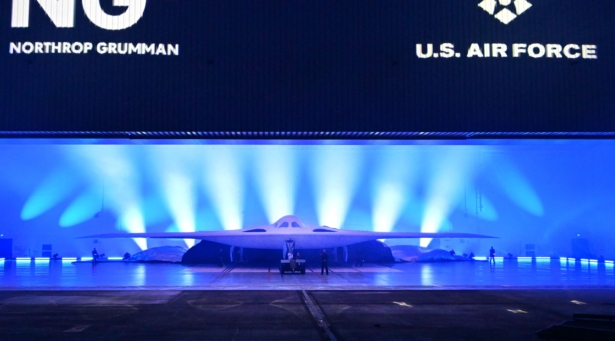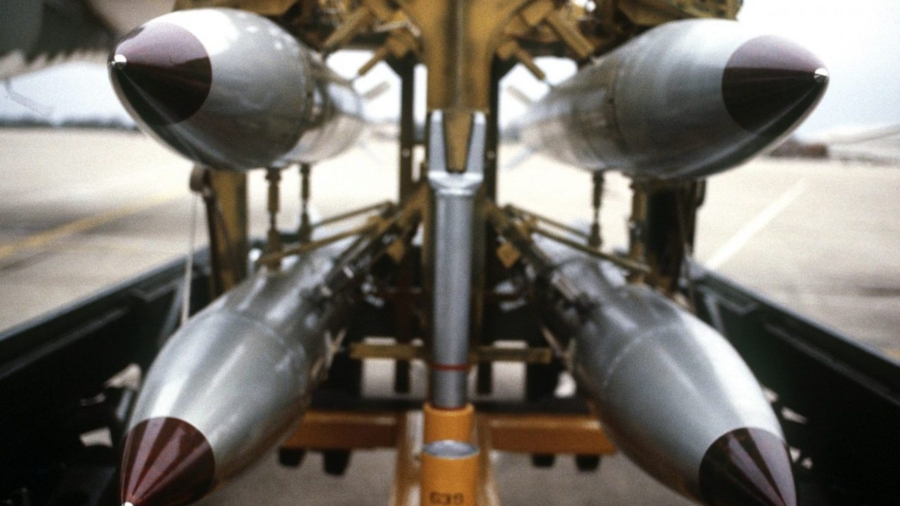In response to what it called a “rapidly evolving” global environment, the U.S. Department of Defense (DOD) announced it seeks to develop a new variant of the B61 nuclear gravity bomb.
“Today’s announcement is reflective of a changing security environment and growing threats from potential adversaries,” said Assistant Secretary of Defense for Space Policy John Plumb.
The decision to develop what has been called the B61-13 was made based upon the findings of the 2022 Nuclear Posture Review (NPR), which observed that America’s “competitors” continue to expand, diversify, and modernize their nuclear forces and reliance on nuclear weapons, the DOD said in its announcement.
“The United States has a responsibility to continue to assess and field the capabilities we need to credibly deter and, if necessary, respond to strategic attacks, and assure our allies,” Mr. Plumb said.
The NPR advised a balanced approach to the current security environment, focusing on deterrence, renewed commitment to pursue arms control, and other risk reduction measures.
To achieve sufficient deterrence, the DOD ruled it necessary to upgrade the U.S. nuclear arsenal. The new bomb would be built by the Department of Energy’s National Nuclear Security Administration.
“The B61-13 represents a reasonable step to manage the challenges of a highly dynamic security environment,” said Mr. Plumb.
Test in Nevada
The announcement comes after the United States conducted a high-explosive underground experiment at a nuclear test site in southern Nevada earlier this month, just hours after Russia announced it would no longer observe the Comprehensive Test Ban Treaty. Even though the treaty, which bans nuclear explosion tests, was never legally ratified, both Russia and the United States adhered to it until now.
In recent months, Russia has been strengthening its ties with its North Korean ally, pledging complete support for the regime of Kim Jong-Un.
In early September, North Korea unveiled its first nuclear-armed submarine as the next step in the ongoing expansion of the regime’s nuclear weapons program.
Improved Compatibility
The new bomb will be an upgraded version of the old B61-7 model, having a similar yield but better compatibility with modern aircraft, including the B-21 Raider stealth bomber currently being developed by the Air Force.
The new weapon will replace some of the old B61 models in stock, the DOD said.

“While it provides us with additional flexibility, production of the B61-13 will not increase the overall number of weapons in our nuclear stockpile,” Mr. Plumb said.
The B61 series of nuclear bombs, first developed during the Cold War, can be equipped with variable yields.
According to a Defense News report, the B61-7 model has a range of 10 to 360 kilotons—24 times more than the 15-kiloton bomb dropped on Hiroshima during World War II.
The project is now awaiting Congressional authorization.


